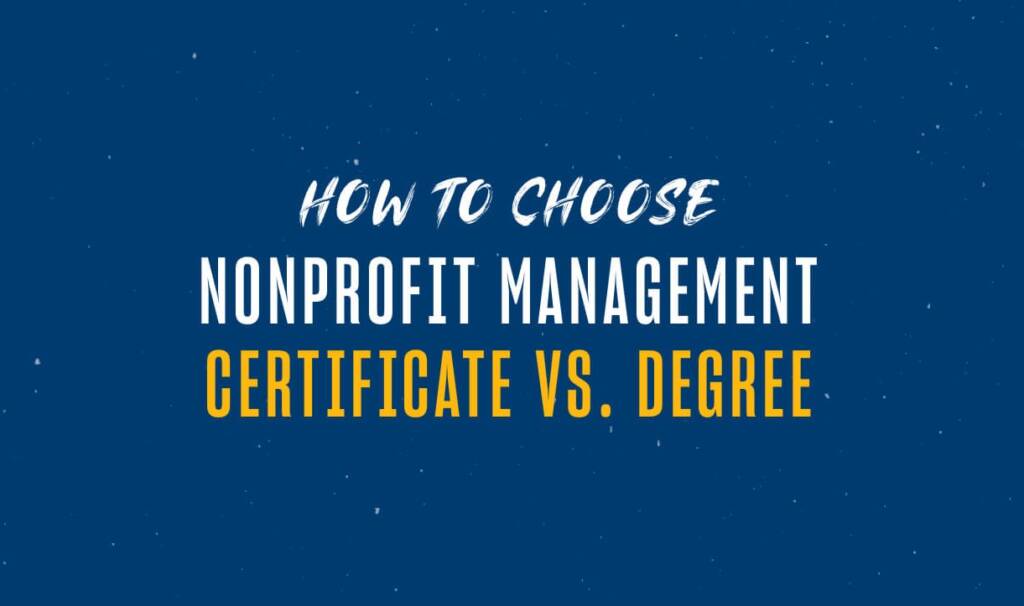For those looking for career-building advanced degrees, business degrees continue to be the most popular option. The most recent data from the National Center for Education Statistics show that business degrees — specifically any degree related to management, marketing or related support services — made up 23% of all awarded master’s degrees.
At the same time, the growth of online degree programs has exploded with the NCES also showing a total of 1,294,448 students exclusively enrolled in distance education at title VI institutions — an increase of almost 30% over pre-pandemic levels. That level of popularity now extends to online business programs as well, with Inside Higher Ed reporting that the popularity of online master of business administration (MBA) programs has actually overtaken in-person programs. A reported 45,038 students enrolled in online programs during the 2020-2021 academic year, compared to 43,740 enrolled at in-person programs.
With a rapidly growing number of online programs that offer unique specialties and concentrations in the field of business, it can be difficult to decide which one would best align with your experience, skills and larger career goals. So, consider this an overview of the possible types of grad school business degree choices, how they differ and the questions you should ask when researching programs.
Master’s Degree in Business vs. Master of Business Administration
Let’s start by distinguishing between the common master of business administration (MBA) degree and more specialized business degrees. The traditional MBA is a generalized approach to understanding business functions and processes, broadly ranging from operations to strategy. A standard MBA curriculum will provide you with an overview of how all the pieces of a company fit together and teach skills and case studies relevant to general business practice and operation.
Some MBA programs may require that applicants have prior work experience in business, though other programs are less strict in their requirements or may make exceptions. While many MBAs enable students to specialize in areas such as economics, finance or marketing, the number of courses you could take in any given concentration in a two-year MBA program won’t be equivalent to the deep-dive offered by more specialized master’s degrees in business programs.
Specialized business master’s degrees give you the benefit of a more defined career path or make you a better fit for a certain industry, though you may have less flexibility to pursue areas unrelated to your specific field of study. Master’s in business degree programs are less likely to require previous business experience and are often shorter, accelerated programs — sometimes lasting just one year — and usually accept students with little work experience.
The two degrees can be considered complementary — a business master’s student could go on to earn an MBA for more executive experience, whereas an MBA graduate could specialize in a specific type of business master’s degree to become an expert in that field.
Types of Business Master’s Degrees
As schools continue to expand their business programs, the number and types of graduate business degrees continues to grow as well. Consider the following list an overview of the more popular and widely-offered speciality degrees.
Master in Management (MiM) — This business degree specialization focuses on a thorough grounding in business and managerial topics. Most MiM programs will employ a mix of theoretical and experiential learning to teach concepts and then have students explore them in “real-world” scenarios. The MiM degree is suited for those interested in management positions across different industries like consulting, finance and technology.
Master of Marketing — For those looking to build their skills and knowledge of marketing principles such as strategy and branding, a Master of Science in Marketing would be a suitable specialization. Graduates can expect to study and build mastery over multiple areas of marketing, including brand management, social media marketing and direct marketing. With this subject-specific knowledge, you can expect to land senior or management roles in sales, advertising or marketing departments or find work as a consultant.
Master of Finance — A Master of Science in Finance program offers in-depth knowledge of the theory and practice of finance. This business degree specialization is intended for those interested in areas such as fintech, financial reporting and quantitative finance. This finance degree is a common choice for those pursuing careers in corporate finance or investment banking and who would like to work in positions such as financial analyst, financial advisor, actuary and chief financial officer (CFO).
Master of Accounting (MAcc) — This financial business degree is for those who want to gain more accounting experience, learn more effective accounting methods and gain knowledge that would enable them to pass the exam to become a Certified Public Accountant (CPA). It’s a good option for those who would like to pursue a career as an auditor, chartered accountant or corporate controller at large accounting firms. It could also be a good fit for those pursuing management positions in corporate accounting or looking for work as an independent contractor.
Master of Information Technology — Sometimes called a Master of Business in Information Technology (MBIT) or Master of IT in Business (MITB), this degree combines management and leadership training with lessons in areas of modern IT, including cloud computing, Internet of Things (IoT), software processes, data science and analytics. This degree is well-suited for those interested in jobs such as IT consultant and chief information officer (CIO). For full details on possible career paths and salary amounts, see our comparison post between the MBA in IT degree and a Master of Science in IT.
Master of Business Analytics (MBAn) — Similar in approach to the Master of Data Analytics degree, the MBAn is more geared toward those who want to learn how to solve business challenges by leveraging data-driven insights to make decisions. Most MBAn curriculum will cover how modern data science and machine learning capabilities can build and apply mathematical models to real-world business situations. This degree is a good option for those pursuing upper leadership positions, such as chief analytics officer (CAO) across industries including insurance, health care, banking and consumer products.
Master of Innovation — A more forward-looking style of business degree, the Master of Innovation takes elements of global economics, communication and entrepreneurship and integrates them into strategies to understand market trends to drive growth and product development. The curriculum will feature specialized coursework focusing on product and service development, lean innovation, how to finance business growth, product-market fit and more.
Entrepreneurship Degree — The Master of Entrepreneurship Degree is intended for those more interested in the skills and knowledge useful for starting their own business. Entrepreneurship programs will have curriculums that teach principles of effective leadership, strategies for risk management and processes of business operations. These degrees are generally meant for those who want to manage start-ups rather than a small business, though the principles will be applicable to most areas of business ownership.
Master of Nonprofit Leadership and Management — This degree is designed for anyone with an established career in nonprofit leadership, or working professionals thinking about switching sectors. Courses are focused on practical applications and skills needed to make a lasting impact. The curriculum is updated in real time, focusing on executive leadership, advanced management practices, board governance, fundraising and more. Above all, a Master of Nonprofit Leadership and Management program is best suited for those committed to working toward a social purpose.
Questions to Ask about Choosing a Business Master’s Degree
Determining which type of business master’s degree you’d like to pursue should start with a consideration of your interests and goals. Wanting to work a high-end position in finance requires a very different set of specialized skills than wanting to work in marketing or having a talent for sales and outreach. There’s also the consideration of industry — are your interests industry-agnostic or are you enticed by the possibilities offered by certain areas, such as IT or communications?
After determining your goals for your degree, you can ask the following questions to further narrow down your options:
- Are you willing to commit to a full-time program, or do you need the flexibility offered by a part-time program?
- Are you able to attend in-person classes or would you prefer programs that offer online classes?
- How long will it take you to earn your degree? Do you need to attend an accelerated program to finish faster, or do you have a few years to finish a part-time program?
- Does the program require testing such as the ACT, GRE or GMAT?
- What prior education or experience does the program require? Do you have that relevant experience, or are you in a position where you can attain it?
Your answers will help determine where to start your online search. If you happen to be interested in a unique management and leadership training opportunity — offered 100% online — the University of San Diego’s MSNP degree might be a good fit for you.
The program centers on advancement management skills, board governance, program development, evaluation and philanthropy. For anyone passionate about contributing to measurable, sustainable social change, this degree is a top choice to advance your future success.
Choosing an online master’s degree program is not a process to take lightly. Check out our free eBook, “Choosing an Online Master’s Degree — The Ultimate Evaluation Guide,” as you weigh your many options.




